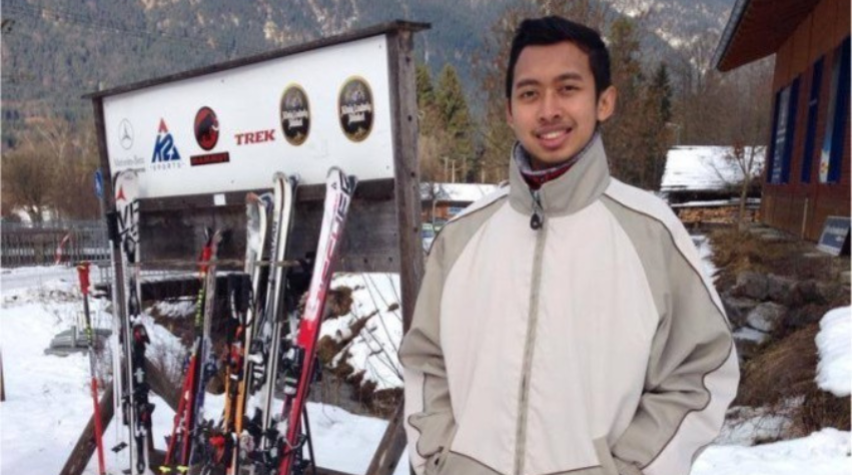
Welcome to the latest in a series of AIChE blog posts profiling process engineers, a diverse group of professionals spanning multiple industries and regions. In this series, we profile process engineers who work in a wide range of fields, including petrochemicals, pharma, bulk chemicals, food, or any process-intensive industry.
Are you a member and process engineer interested in being profiled? We’d love to hear from you via this volunteer opportunity. Please also check out our online discussion group specifically for process engineers. You can find out about these initiatives and join our efforts by visiting aiche.org/process-engineers.
This month, we introduce you to Abyadh Basyari, Shift Operation Engineer at Nippon Shokubai Indonesia. He discusses the path that led to his career in process engineering, overcoming challenges, and the importance of his work.
Tell us a bit about your work as a process engineer.
My primary responsibility is to ensure that the plant operates in an environment that is as stress-free and productive as humanly feasible. During our meetings, the handover from the prior shift is discussed, along with any issues that have arisen and what actions are being taken towards a solution.
I am also in charge of improvement projects including energy efficiency (such as steam), changes or additions to plant design (both related to equipment or piping), controling DCS panels, checking the use of inhibitors, and the condition of gas turbines and heat recovery steam generators. All of this falls under the umbrella of “improvement projects.”
Additionally, I carry out the calculations that are associated with the balancing that takes place in the plant. These calculations include the mass balance, heat balance, and utility balance.
Why did you become a process engineer?
Chemistry is recognized to be a tough subject in my country, so I felt compelled to study it. My high school had a chemical analyst emphasis, so I thought majoring in chemical engineering would be a difficult and rewarding major since engineering, as we all know, is difficult. Furthermore, I enjoy computations, both in physics and math.
After I obtained my degree in chemical engineering, I chose to pursue process engineering because it is considered the pinnacle of success in the field of chemical engineering.
What were some of the biggest challenges you faced in your role as a process engineer?
My greatest difficulties arise when what I have learned in the classroom does not match what I see in the field. For that reason, in my opinion, there should be specific requirements for the application of certain computations.
I believe that attitude is very important for a worker because, no matter how brilliant he is, if he has a terrible attitude, he will be regarded negatively.
How is your work as a process engineer critical to your particular job assignment or industry?
Everything we do must be based on evidence, not emotions or history. We complete the first phase, which is assessing and calculating, so that what we do will be organized even if our calculations are incorrect. My supervisor stated that the key to success is the beginning preparation, which accounts for around 60% of total success.

What do you think is the most important about your work as a process engineer?
The most crucial thing to have is a solid mathematical basis, whether for balancing, equipment, or even conversion. That is why we are hired as process engineers and what distinguishes us.
I also believe that attitude is very important for a worker because, no matter how brilliant he is, if he has a terrible attitude, he will be regarded negatively.
In addition to attitude, we must occasionally be willing to learn fast and accurately since factories are not like schools where we get re-exams; if you do something incorrectly, it will be disastrous to your factory.
Furthermore, some of the most important work we do relies on our fundamental chemical engineering skills, such as mass and heat balance and logical operations. Equipment calculations are also a vital prerequisite for plant process engineers.
Connect with Abyadh on AIChE Engage
Join the Community of Process Engineers
The Community of Process Engineers is brought to you by Scott & Karen Love. Their support enables the AIChE Foundation to advance process engineers at every stage of their career allowing them to Do a World of Good.
AIChE Foundation – Doing a World of Good Campaign

If you are interested in learning more about professional development, networking, and interviewing, be sure to check AIChE Career DiscoveryTM, which is part of the Institute for Learning & Innovation (ILI). See upcoming instances of the Career Discovery Workshop on AIChE Academy and read more about the process here.
Learn more about professional development


